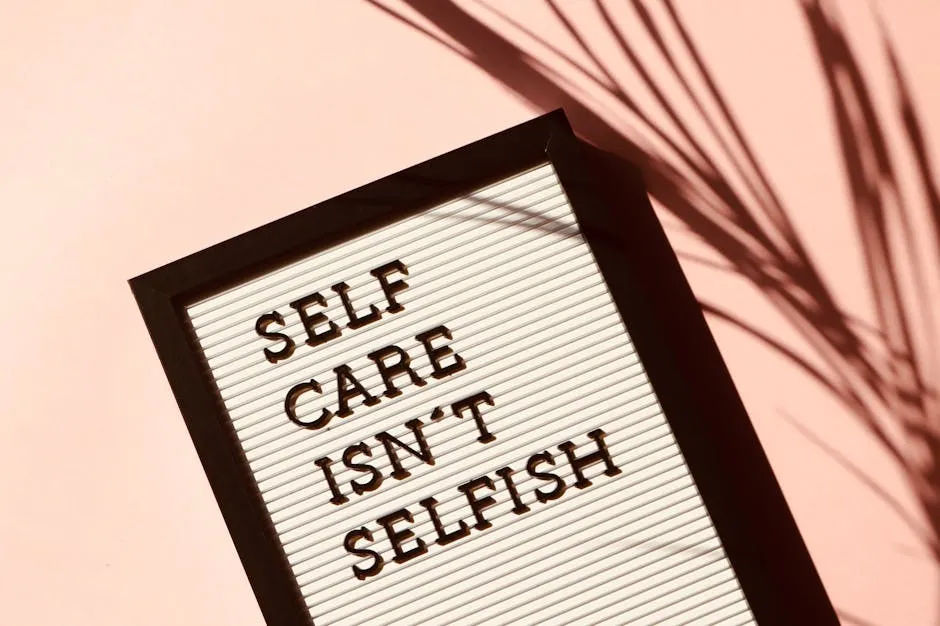
Why Is It Awful to Call Someone Anorexic
Introduction
Eating disorders carry a heavy stigma. Labels like “anorexic” can deepen that stigma. It’s vital to understand our language when discussing mental health. Words can either empower or harm those struggling with eating disorders. Let’s take a closer look at this issue.
Overview
Anorexia nervosa is a serious eating disorder. It involves extreme restriction of food intake and intense fear of gaining weight. This condition can lead to severe health complications, both physically and mentally. Unfortunately, many people hold misconceptions about anorexia. They often associate it solely with thinness, overlooking the mental struggles involved.
When we label someone as “anorexic,” we reduce them to their illness. This label can impact their self-esteem and sense of identity. It’s essential to recognize the difference between “having” an eating disorder and being defined by it. A person is not just their disorder; they are a whole individual with dreams, fears, and talents.

If you’re looking for insightful reads to better understand these topics, “Braving the Wilderness: The Quest for True Belonging” by Brené Brown is a fantastic choice. This book explores the importance of belonging and the courage it takes to be vulnerable. It can provide valuable perspectives on emotional struggles, which can be quite relatable for those dealing with eating disorders.
This article aims to shed light on why calling someone anorexic is damaging. It also encourages the use of respectful language when addressing those with eating disorders. Compassionate communication can foster understanding and support, paving the way for recovery.
The Harmful Effects of Labels
Understanding Labels
Labels can create significant stigma. When we call someone “anorexic,” we reduce them to a single term. This oversimplification can lead to negative stereotypes. It also fosters misunderstandings about the complex nature of eating disorders.
Being labeled can have deep psychological effects. Individuals may internalize the label, impacting their self-esteem. They might begin to see themselves solely through that lens. Language plays a crucial role in shaping our perceptions and behaviors. The words we choose can either promote understanding or perpetuate harm.

The Impact on Recovery
Labeling can severely hinder recovery efforts. It can create barriers that prevent individuals from seeking help. When someone feels labeled, they may experience deep shame and isolation. This can deter them from reaching out for support, which is vital during recovery.
Support is essential in overcoming eating disorders. A compassionate environment encourages healing. When people are viewed as more than their labels, they feel empowered. This can foster hope and motivation, critical components for recovery.
For those seeking guidance, “The Gifts of Imperfection” by Brené Brown offers a powerful perspective on embracing our vulnerabilities. It can be a comforting read for anyone feeling overwhelmed by their circumstances.
Case Studies and Personal Experiences
Consider the story of Sarah, who struggled with anorexia. She shared, “Being called anorexic made me feel trapped in my illness.” Initially, the label made her hesitant to seek help. Studies show that stigma surrounding mental health can lead to a 50% increase in the duration of untreated disorders.
Another individual, Mark, stated, “I felt like I was nothing but my eating disorder.” His experience highlights the need to recognize the person beyond the label. Statistics show that almost 70% of individuals with eating disorders face stigma, which can delay recovery. Understanding the harmful impact of labels is crucial for fostering a supportive atmosphere for those in need.

The Importance of Language
The Power of Words
Words shape our reality. They can uplift or harm. When we use terms like “anorexic,” we define a person by their condition. Instead, it’s better to say “a person with anorexia.” This subtle shift emphasizes the individual, not just the disorder. By focusing on the person, we open the door to understanding and compassion. Think about how you would want to be described. Would you prefer to be labeled by your struggles or seen as a complete person?

Alternatives to “Anorexic”
Using respectful language is crucial when discussing eating disorders. Instead of “anorexic,” consider saying “a person with anorexia” or “someone struggling with an eating disorder.” Supportive phrases can make a world of difference. For example, say, “I’m here for you,” or “You’re so much more than your condition.” These alternatives convey empathy and help foster a positive environment. Remember, kindness in our words can encourage healing and connection.
And speaking of kindness, if you’re looking for a way to unwind and practice mindfulness, consider using an Essential Oil Diffuser. This can create a calming atmosphere and promote relaxation, which is beneficial for anyone dealing with stress or anxiety.
The Role of Society and Media
Media representation significantly impacts societal views on eating disorders. Portrayals often perpetuate stereotypes, connecting thinness with beauty or worth. This can reinforce harmful beliefs about body image. As consumers, we must hold media accountable for how they depict these issues. We all share the responsibility to use respectful language. By choosing our words carefully, we can challenge stigmas and foster a culture of understanding. Together, we can create a more compassionate society.

Addressing Misconceptions
Common Myths about Anorexia
Many myths circulate about anorexia. One common misconception is that it only affects young women. In reality, people of all ages and genders can struggle with this disorder. Another myth is that anorexia is solely about wanting to be thin. The truth is more complex. Anorexia often stems from deep emotional issues, societal pressures, and mental health struggles. It’s not just about food; it’s about control, fear, and often anxiety or depression.
Eating disorders, including anorexia, involve intricate psychological layers. They can be influenced by family dynamics, trauma, and even genetics. Understanding these complexities helps to dismantle harmful stereotypes. Let’s remember that eating disorders are not simply a phase or a choice. They are serious conditions that require compassion and understanding.

Understanding Anorexia as a Mental Health Disorder
Anorexia is primarily a mental health issue, not just a physical one. It involves distorted body image and intense fear of gaining weight. This condition can lead to severe mental distress, affecting daily life and relationships. Many individuals with anorexia also experience comorbid conditions, such as anxiety or depression. This interplay can complicate recovery efforts.
Recognizing anorexia as a psychological condition emphasizes the need for comprehensive treatment. It’s not enough to address the physical symptoms; mental health support is crucial. By framing anorexia this way, we can foster a deeper understanding of its impact.

Importance of Empathy
Empathy plays a critical role in conversations about eating disorders. When we approach these discussions with compassion, we create a safe space for individuals to share their experiences. This understanding leads to support rather than judgment. Instead of using harmful labels, we should listen and validate their feelings.
Imagine how it feels to be reduced to a label. That can be isolating and damaging. Instead, let’s focus on the person behind the disorder. By encouraging open dialogue and showing empathy, we can help break the cycle of stigma. Ultimately, understanding and kindness can lead to healing and recovery for those affected by anorexia.

How to Support Someone with Anorexia
Encouraging Open Dialogue
Starting a conversation with someone struggling with anorexia can be tough. Begin by expressing genuine concern. You might say, “I’m worried about you. Can we talk?” This simple question opens the door to much-needed dialogue. Remember, active listening is key. Make sure to hear their feelings without judgment. Validate their experiences by saying things like, “It sounds really difficult.” This shows you care and understand their struggle.
Creating a safe space for them to share can help build trust. Encourage them to express their thoughts and feelings. You can ask open-ended questions like, “How have you been feeling about food lately?” This invites them to share more. Your openness can make a big difference in their willingness to open up.

Respecting Boundaries
It’s vital to respect personal boundaries during these conversations. Always let them decide when and how much to share. If they seem uncomfortable, gently shift the topic. You might say something like, “We can talk about something else if you prefer.” This shows you respect their needs.
To be supportive without being invasive, check in regularly. A simple text asking how they are can mean a lot. Offer to do activities that don’t revolve around food, like watching a movie or going for a walk. This helps normalize your relationship and takes the focus off their eating habits.

Resources for Help
If you or someone you know needs professional support, it’s important to reach out. Organizations like the National Eating Disorders Association provide valuable resources. They offer helplines and treatment options for those struggling and their families.
Additionally, consider local counseling services that specialize in eating disorders. Professional help is crucial for recovery. Remember, recovery is a journey, and having the right support can make all the difference. Encourage your loved one to seek assistance, and be there to support them through the process.

For a deeper dive, “The Body Keeps the Score: Brain, Mind, and Body in the Healing of Trauma” by Bessel van der Kolk is an excellent resource. It delves into how trauma affects the mind and body, which is essential for understanding the complexities of eating disorders.
Conclusion
Using labels like “anorexic” can be harmful and limiting. It’s essential to adopt compassionate language that recognizes individuals as people first. Let’s strive to speak with kindness and understanding. Remember, everyone deserves to be seen beyond their struggles. By fostering a supportive environment, we can help those affected feel valued and understood. Together, we can make a difference in how we communicate about mental health issues.

If you’re interested in self-care tools, consider a Weighted Blanket or a Meditation Cushion to enhance your relaxation experience.
Please let us know what you think about our content by leaving a comment down below!
Thank you for reading till here 🙂
All images from Pexels




